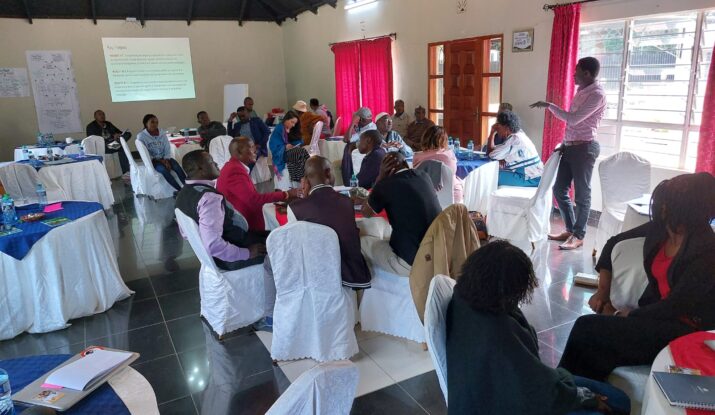APReD’s Managing Director Mr. Paulson Erot Tadeo (standing) sharing his experience, professional and technical insights in regards to the nexus between Conflict, Climate Change and Nutrition during USAID Nawiri’s ‘Reflection and Co-creation’ workshop held in Eldoret, Kenya. The USAID Nawiri program has made significant progress in its 5-year initiative (funded by USAID’s Bureau of Humanitarian Assistance/BHA) to better understand and take forward concrete solutions to persistent acute malnutrition (PAM) particularly in Samburu and Turkana Counties.
The workshop brought together over 40 key stakeholders drawn from government agencies (national & county), Non-governmental Organizations (NGOs), Civil Society Organizations (CSOs), Faith-Based Organizations (FBOs), Community-Based Organizations (CBOs) and private institutions working in Samburu and Turkana Counties. The grand goal of the workshop was to engage stakeholders in jointly reflecting and co-creating the relationship between acute malnutrition, violent conflict and climate change, as well as to establish entry points (appropriate interventions) for USAID’s Nawiri program in Holistically and Sustainably addressing difficulties associated to this nexus. This served as a guiding framework for the program’s continued design, testing, and adaptation of Nawiri activities, painting a clear picture of the program’s collective understanding of the current context as it relates to the linkages between conflict, climate and nutrition, proposed change pathways, and how activities will be monitored and refined based on learning.

